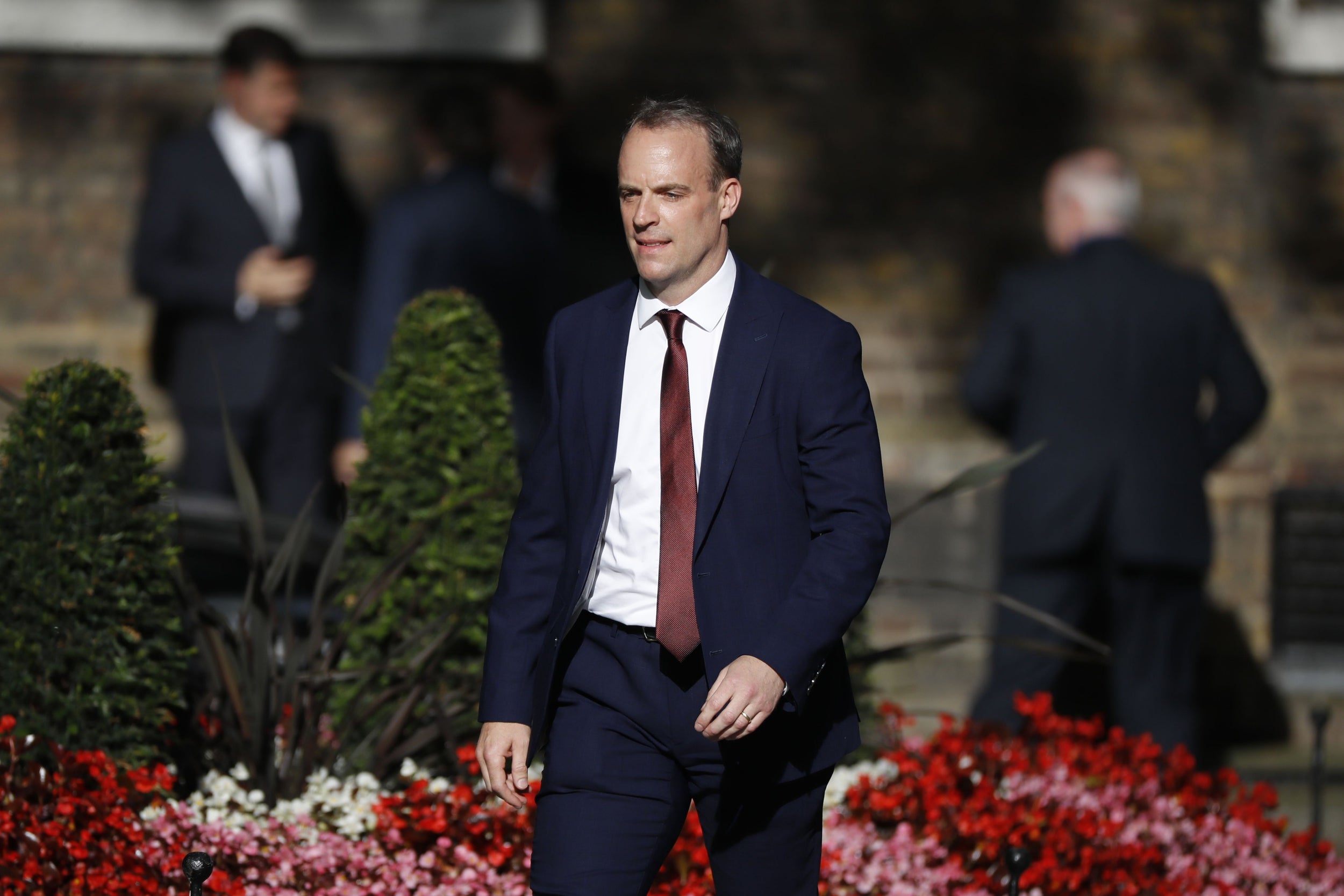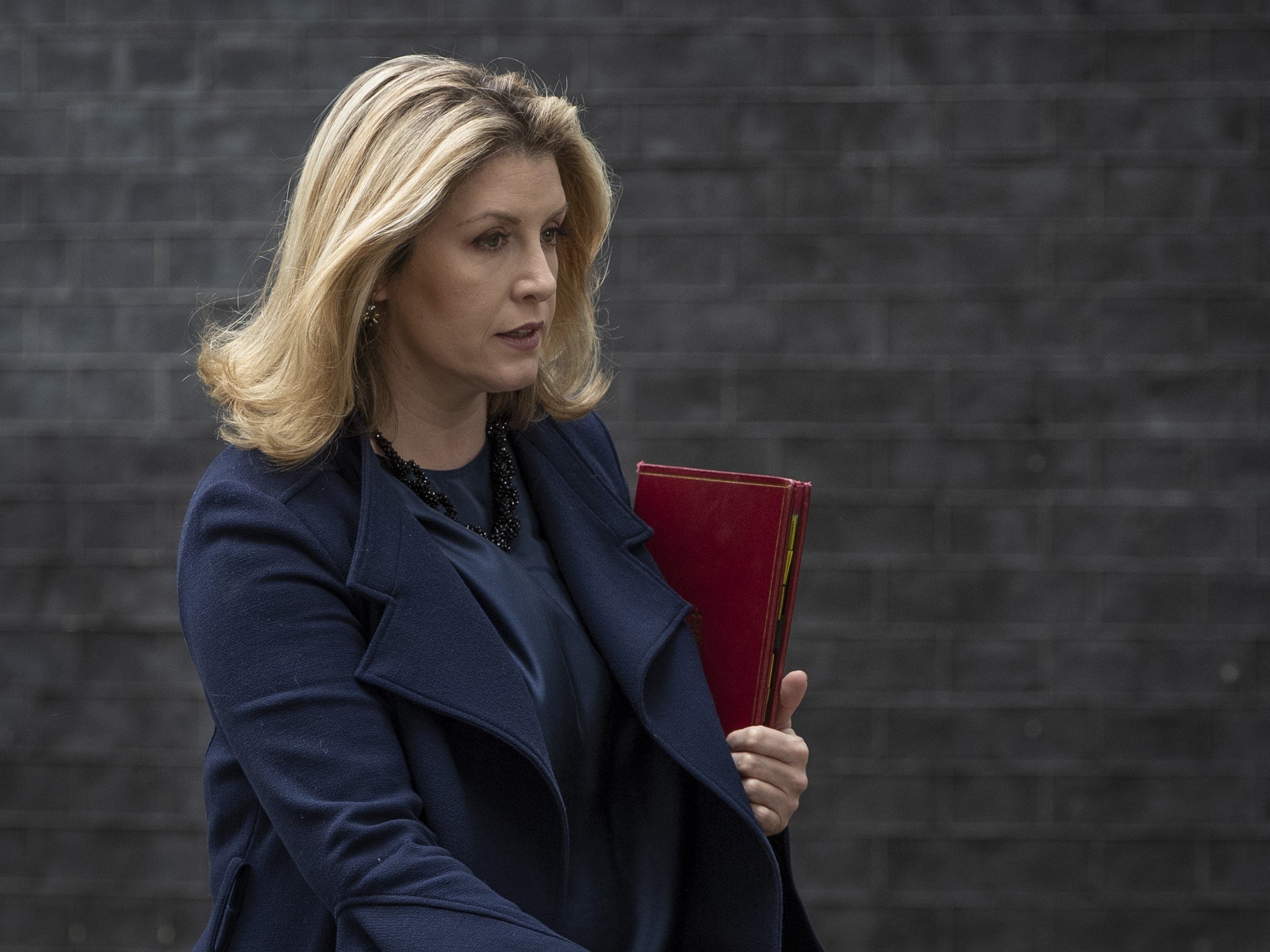Boris Johnson dismantles cabinet in reshuffle, building government around people who delivered Brexit vote
Sajid Javid becomes first Muslim chancellor, while Jeremy Hunt walked out after rejecting move to defence
Your support helps us to tell the story
From reproductive rights to climate change to Big Tech, The Independent is on the ground when the story is developing. Whether it's investigating the financials of Elon Musk's pro-Trump PAC or producing our latest documentary, 'The A Word', which shines a light on the American women fighting for reproductive rights, we know how important it is to parse out the facts from the messaging.
At such a critical moment in US history, we need reporters on the ground. Your donation allows us to keep sending journalists to speak to both sides of the story.
The Independent is trusted by Americans across the entire political spectrum. And unlike many other quality news outlets, we choose not to lock Americans out of our reporting and analysis with paywalls. We believe quality journalism should be available to everyone, paid for by those who can afford it.
Your support makes all the difference.Boris Johnson has conducted a ruthless cabinet bloodbath to build his government around the team which delivered the Vote Leave result in the Brexit referendum.
Within hours of taking over from Theresa May as prime minister, Mr Johnson sacked 11 senior ministers, while six more walked out rather than serve under the new PM.
Key figures from the Brexit side of the EU referendum were catapulted into top jobs, with Priti Patel becoming home secretary and Dominic Raab foreign secretary while Vote Leave supremo Dominic Cummings will be “Johnson’s chief executive” as a senior No 10 adviser.
Jacob Rees-Mogg, chairman of the European Research Group, was appointed Leader of the House of Commons and Lord President of the Council and will attend cabinet.
Michael Gove, who was joint figurehead of the Vote Leave campaign alongside Mr Johnson in 2016, became chancellor of the duchy of Lancaster, with responsibility to lead preparations for a possible no-deal Brexit in October.
Other pro-Brexit politicians in Mr Johnson’s cabinet include Stephen Barclay as Brexit secretary, Liz Truss as international trade secretary, Andrea Leadsom as business secretary and Theresa Villiers as environment secretary.
Mr Raab – who previously served only four months in cabinet before quitting over Ms May’s EU withdrawal deal – was also named first secretary of state, a title normally reserved for the PM’s effective deputy.

The appointments did little to reflect Mr Johnson’s avowed intention to unite the country behind a new withdrawal agreement, leaving some observers to conclude he is heading instead for a fatal clash with no-deal opponents in parliament and an early general election.
Few former Remainers survived the purge of Ms May’s old guard.
Sajid Javid, the new chancellor of the exchequer, was the only one of the four holders of the great offices of state to have backed Remain in the 2016 referendum, becoming the first Muslim to lead the Treasury. Amber Rudd stayed as work and pensions secretary and took on responsibility for women and equalities, while Matt Hancock stayed on as health secretary. Robert Buckland was promoted from prisons minister to justice secretary and Lord Chancellor.
Gavin Williamson, who played a key role securing MP’s votes for Mr Johnson in the early stages of the leadership contest, returned to government as education secretary less than three months after being sacked for leaking secrets.
And Nicky Morgan, a former Remainer who helped devise the Malthouse Compromise plan to get rid of the controversial Irish backstop, returned to government as culture secretary after three years on the backbenches.
The former government chief whip Julian Smith has been appointed the new Northern Ireland Secretary. The MP for Skipton and Ripon in Yorkshire since 2010 has previously focused on rural issues, education, business and international development concerns.
Esther McVey has been appointed minister of state at the Ministry of Housing, Communities and Local Government and will also attend Cabinet. James Cleverly has been appointed minister without portfolio and Conservative Party chairman.
Boris Johnson’s cabinet
Chancellor - Sajid Javid- replaces Philip Hammond
Home Secretary – Priti Patel – replaces SajidJavid
Foreign Secretary – Dominic Raab– replaces Jeremy Hunt
Brexit Secretary - Stephen Barclay- no change
Chancellor of the Duchy of Lancaster - Michael Gove - replaces David Lidington
Defence Secretary - Ben Wallace- replaces Penny Mordaunt
International Trade Secretary - Liz Truss- replaces Liam Fox
Health Secretary - Matt Hancock - no change
Environment Secretary - Theresa Villiers- replaces Michael Gove
Education Secretary - Gavin Williamson - replaces Damian Hinds
Culture Secretary - Nicky Morgan- replaces Jeremy Wright
Business Secretary - Andrea Leadsom- replaces Greg Clark
Housing and Communities Secretary - Robert Jenrick - replaces James Brokenshire
Works and Pensions Secretary - Amber Rudd- no change (also takes Women and Equalities brief)
Justice Secretary - Robert Buckland- replaces David Gauke
International Development Secretary - Alok Sharma - replaces Rory Stewart
Transport Secretary - Grant Shapps- replaces Chris Grayling
Welsh Secretary - Alun Cairns - no change
Scottish Secretary - Alister Jack - replaces David Mundell
Northern Ireland Secretary - Julian Smith- replaces Karen Bradley
Leader of Lords - Baroness Evans- no change
Leader of Commons - Jacob Rees-Mogg- replaces Andrea Leadsom
Conservative Party chairman - James Cleverly- replaces Brandon Lewis
The new cabinet will meet for the first time on Thursday morning, before Mr Johnson makes his first statement as prime minister to the Commons, where he can expect a hostile reception from Labour, Liberal Democrats and pro-EU rebels on his own Tory benches.
Labour chairman Ian Lavery accused Mr Johnson of creating “a cabinet of hardline conservatives who will only represent the privileged few”.
They included “a chancellor who’s consistently called for more tax cuts for big corporations, home and education secretaries who were sacked for breaches of national security and a foreign secretary who doesn’t know the importance of our ports”, he said.
Mr Johnson’s vanquished rival in the Tory leadership race, Jeremy Hunt, walked out of government after refusing to take the defence secretary job vacated by the dismissal of Penny Mordaunt after less than there months in the job

Mr Johnson’s massacre – removing more than half of the cabinet in a matter of hours – was the most brutal in modern political history, putting in the shade the famed Night of the Long Knives, when Prime Minister Harold Macmillan sacked seven ministers in 1962.
Even prominent Brexiteers were not spared, with Ms Mordaunt, Liam Fox and Chris Grayling falling beneath Mr Johnson’s axe as the new PM fashioned a team designed for an all-out 99-day charge for the EU exit door.
But members of Mr Johnson’s inner circle were rewarded, with long-time ally Ben Wallace eventually taking the defence job and Robert Jenrick becoming housing secretary. Grant Shapps, who played a key role in his leadership campaign, became transport secretary.
In his first speech as PM outside the famous black door of Downing Street, Mr Johnson left no doubt of his determination to deliver Brexit by the Halloween deadline, with or without a deal, “no ifs or buts”.
But he also claimed he wanted to “unite the country”.
Westminster watchers said the lopsided construction of his first cabinet was unlikely even to unite his party, with a slew of big beasts now on the backbenches determined to stop a no-deal outcome.
And he goes into what will be a fraught period of negotiation with his working majority balanced on a knife-edge and likely to be reduced to a single seat by next week’s by-election in Brecon and Radnorshire following the stripping of Chris Davies of his seat because of an expenses scandal.
Lib Dem Brexit spokesman Tom Brake said: “I think all the leading Brexit campaigners who three years ago were talking about how the UK would secure a deal are now suggesting that actually the way forward for the United Kingdom is no deal.
“That’s certainly not what was proposed three years ago and I think has no legitimacy whatsoever. We have a prime minister who is willing to advocate that who has just been elected by 0.15 per cent of the population – one in 500 people – and says that no-deal is acceptable.”

Join our commenting forum
Join thought-provoking conversations, follow other Independent readers and see their replies
Comments